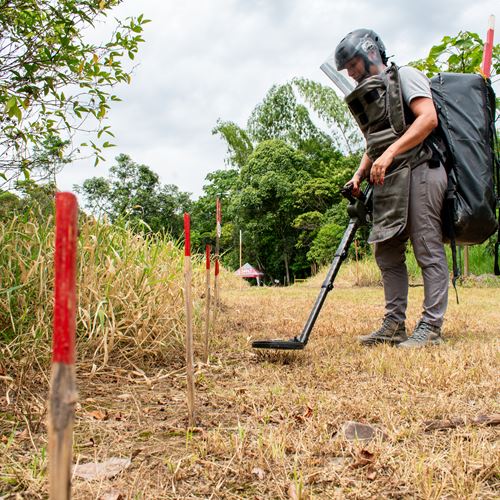News
On Mine Awareness Day, reflections on progress and challenges for a mine free world
Today, on International Mine Awareness Action Day, let us celebrate the progress made and reflect on the challenges that lie ahead, along the road towards a world where every step taken is free from the threat of mines and other explosive ordnance.

The impact of Explosive Ordnance reaches far beyond the immediate violent conflict, posing a significant and indiscriminate threat to civilian populations long after the end of hostilities. Aside from causing death, injury and displacement, explosive ordnance restrict access to agricultural land and resettlement, as well as hinder post-conflict reconstruction and development efforts.
The multifaceted challenge of mines and Explosive Ordnance therefore demands a multi-sectoral integrated approach, to support the recovery of affected communities. DRC’s Mine Action has an approach based on the Humanitarian-Development-Peace nexus.
Investing in land release, victim assistance, and Explosive Ordnance Risk Education not only saves lives and alleviates human suffering but also contributes to long-term development by enabling the return of displaced populations and revitalizing economies. By reducing the risk of Explosive Ordnance-related accidents and promoting safety and human security, Mine Action efforts contribute to the broader goal of sustaining peace.
In addition to joining forces with other DRC core sectors, DRC teams aim to further strengthen our impact through localization.
Close cooperation with national mine action authorities and national HMA operators not only enhances the effectiveness and sustainability of humanitarian mine action programmes but also fosters ownership, resilience and empowerment of communities affected by mines and other EO.
